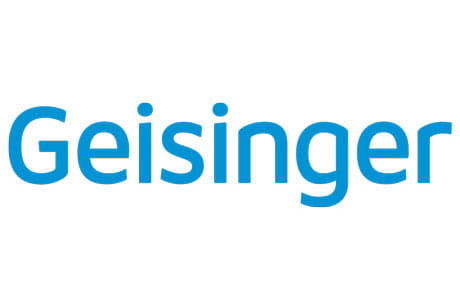Geisinger scientists lead multinational study of COVID-19 and stroke
Data shows low correlation between COVID infection and stroke
The multinational COVID-19 Stroke Study Group included scientists and clinicians from 99 medical centers in 11 countries. The team was led by Ramin Zand, M.D., a vascular neurologist and clinician-scientist at Geisinger, and coordinated by Shima Shahjouei, M.D., a postdoctoral stroke fellow at Geisinger.
Some reported symptoms and effects of COVID-19 involve the nervous system, ranging from a loss of smell or taste to more severe and life-threatening conditions such as altered mental state, meningitis, and stroke. The first phase of the study, which included data on 26,175 patients, indicated an overall stroke risk of 0.5% to 1.2% among hospitalized patients with COVID-19 infection. The finding demonstrated that, even though there are increasing reports of patients with COVID-19 experiencing stroke, the overall risk is low.
“For clinicians, knowing the rate of stroke among COVID-19 patients is important when deciding to order confirmatory brain imaging for stroke diagnosis,” said Dr. Zand. “Having a clear understanding of the rate of stroke among hospitalized patients with COVID-19 infection is the first step towards better patient management and risk mitigation.”
The study results were published this month in EbioMedicine, a publication of The Lancet.
Using data collected through this coordinated effort, the COVID-19 Stroke Study Group is exploring the leading causes of stroke, related complications, age of onset and severity of stroke among COVID-19 hospitalized patients using an even larger cohort from more than 30 countries. The team is also exploring innovative methods, including machine learning algorithms, to extract patterns and identify possible risk factors. The team hopes to increase patient chances of recovery by monitoring the key factors linked to poor outcomes among this vulnerable population.
“Our experience using machine learning and artificial intelligence has been very positive here at Geisinger, and we see huge potential to continue its use during these uncertain times,” said Vida Abedi, Ph.D., a scientist in the department of molecular and functional genomics at Geisinger. “We are well equipped to break new ground in identifying potential venues to improve care for stroke patients, even as they are affected by COVID-19 infection and its related complications.”
About Geisinger
Geisinger is among the nation’s leading providers of value-based care, serving 1.2 million people in urban and rural communities across Pennsylvania. Founded in 1915 by philanthropist Abigail Geisinger, the non-profit system generates $10 billion in annual revenues across 134 care sites - including 10 hospital campuses, and Geisinger Health Plan, with 600,000 members in commercial and government plans. The Geisinger College of Health Sciences educates more than 5,000 medical professionals annually and conducts more than 1,400 clinical research studies. With 26,000 employees, including 1,600 employed physicians, Geisinger is among Pennsylvania’s largest employers with an estimated economic impact of $14 billion to the state’s economy. On March 31, 2024, Geisinger became the first member of Risant Health, a new nonprofit charitable organization created to expand and accelerate value-based care across the country. Learn more at geisinger.org or connect with us on Facebook, Instagram, LinkedIn and X.

For media inquiries:
Ashley Andyshak Hayes
Marketing Strategist
Marketing & Communications
570-271-8081
arandyshakhayes@geisinger.edu
